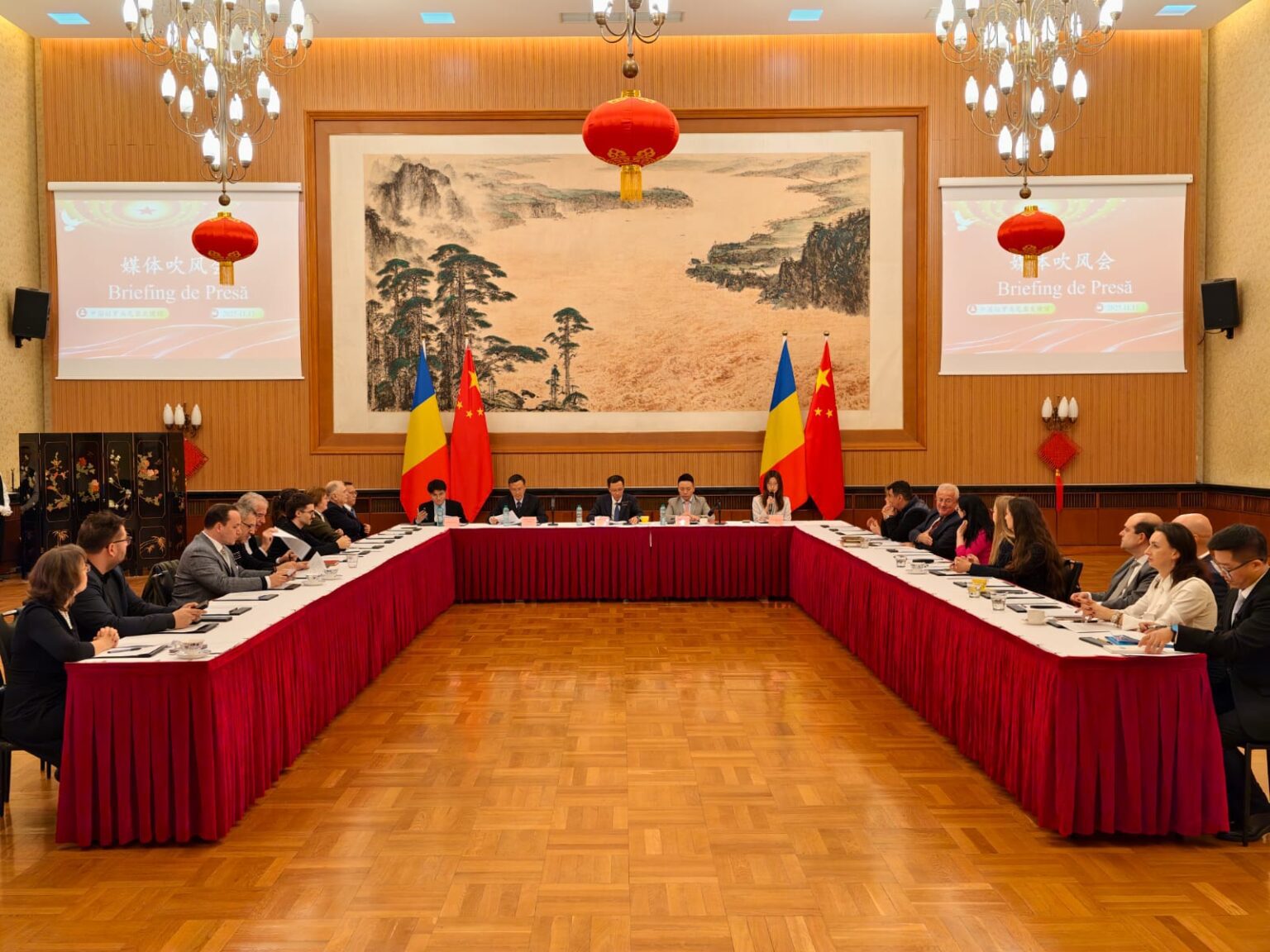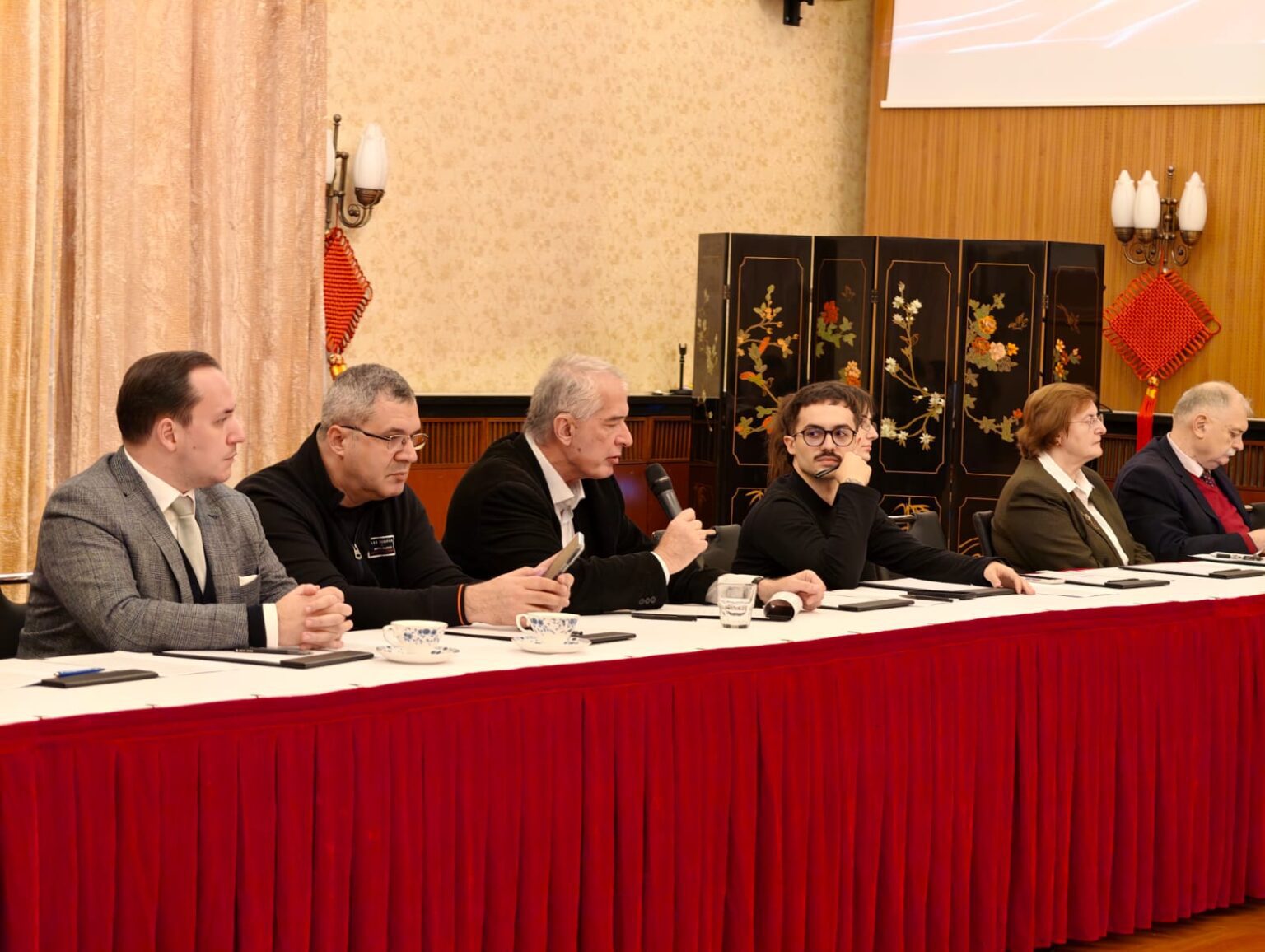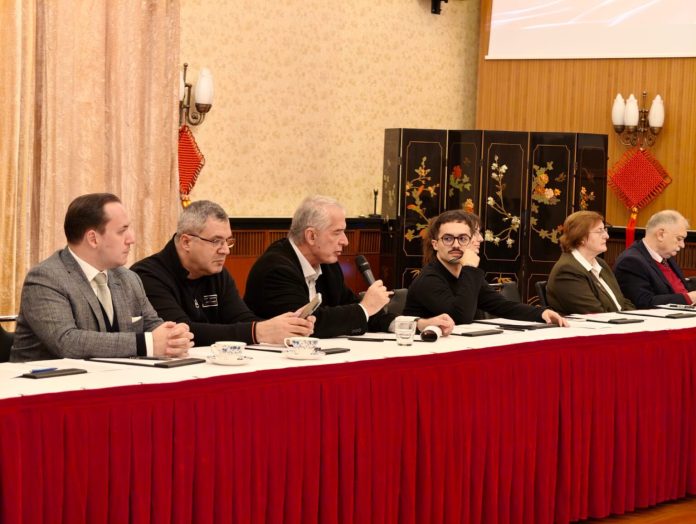H.E. Mr. Chen Feng, Ambassador of the People’s Republic of China to Romania, stated during the press conference dedicated to the fourth Plenary Session of the 20th Central Committee of the Communist Party of China that China and Romania have a Comprehensive Partnership of Friendship and Cooperation, and that bilateral relations have enjoyed stable and continuous development based on mutual respect and equality.

Ladies and gentlemen,
Thank you all for attending today’s press briefing. I am particularly pleased to have this opportunity to exchange views face to face with friends from both the media and Romanian think tanks.
Recently, the Fourth Plenary Session of the 20th Central Committee of the Communist Party of China was held in Beijing. During this session, proposals were deliberated on for the 15th Five-Year Plan (2026-2030) dedicated to China’s economic and social development over the next five years.
The development of medium- and long-term plans for economic and social development is an essential way in which the Chinese Communist Party governs the country.
Since 1953, China has implemented fourteen five-year plans. Under the guidance of the previous five-year plans over the past 70 years, China’s GDP has grown at an average annual rate of 7.9%. China has thus gone from a situation of extreme poverty to its current status as an economically and technologically powerful country, ranking among the world’s leading nations.
During the 14th Five-Year Plan (2021–2025), which is nearing its end, China’s economy has grown at an average annual rate of about 5.5%, and its contribution to global economic growth has remained at about 30%. It is estimated that by 2025, China’s GDP will reach nearly US$20 trillion.
The overall scale of China’s manufacturing industry has remained the world’s largest for 15 consecutive years. China has more than 500,000 high-tech enterprises and now boasts 26 clusters among the world’s top 100 innovation centers, ranking first globally.
China has won the greatest battle against poverty in human history in more than 40 years of reform and opening up, lifting about 750 million people out of poverty and contributing to a more than 70% reduction in global poverty.
The strategic goal of China’s development is to basically achieve socialist modernization by 2035 and build a modern socialist country by 2049, the centenary of the founding of the People’s Republic of China.
The five years corresponding to the 15th Five-Year Plan period will be a crucial stage for consolidating the foundation necessary for the broad realization of socialist modernization and for intensifying efforts in all areas. China will continue to write a new chapter in the two great miracles — rapid economic development and long-term social stability — by making sustained efforts to usher in a new era in building modernization with Chinese characteristics.
The proposals for the 15th Five-Year Plan adopted at the Fourth Plenary Session constitute high-level planning and strategic mapping of China’s development path for the next stage.
In the process of developing the portfolio of proposals, the Central Committee of the Communist Party of China solicited the opinions of the whole of society, receiving over 3 million proposals, of which more than 1,500 were synthesized, fully demonstrating the noble tradition of internal democracy within the Party and the people’s democracy exercised throughout the process.
The proposals for the 15th Five-Year Plan set out the ideological orientation, basic principles, and main objectives of China’s economic and social development during this period, while also presenting over 50 concrete measures grouped into 13 priority areas. Overall, the Fourth Plenary Session conveyed three key messages to the international community:
First, China will focus on its own development process. Over the next five years, the country will continue to promote the development of the real economy, build a modern industrial system, comprehensively strengthen independent innovation capabilities, and continuously stimulate new quality productive forces.
We are confident that we will fully leverage the advantages of the socialist system, the huge size of the domestic market, the complete industrial structure, and the rich human resources to ensure solid and sustainable economic growth. This will inject confidence and vitality into the global economy amid a global context marked by instability.
Second, China will promote high-level opening up. The country will continue to actively expand autonomous opening up, align with high international standards in trade and investment, accelerate the negotiation and implementation of regional and bilateral trade and investment agreements, and promote the high-quality construction of the Belt and Road initiative.
China will uphold open cooperation and shared benefits, turning the vast Chinese market into valuable opportunities for the whole world and offering more development potential for cooperation between China and all countries around the world.
Third, China will promote the building of a community with a shared future for mankind. China will continue to promote the concept of equal and orderly multipolarization of the world and universally beneficial and inclusive economic globalization. It will expand the network of global partnerships and support the building of new types of international relations.
President Xi Jinping has successively proposed the Global Development Initiative, the Global Security Initiative, the Global Civilization Initiative, and the Global Governance Initiative. The proper implementation of the four global initiatives will surely steer the evolution of the international order in a more just and reasonable direction.
The proposals for the Five-Year Plan emphasize the need to maintain and strengthen the comprehensive leadership of the Communist Party of China, guiding social reform through party self-reform. This year, the Chinese Communist Party launched a broad education campaign on thoroughly implementing the essence of the Central Committee’s Eight Rules, with the aim of combating formalism and bureaucracy, curbing hedonism and excesses, and eliminating the causes that foster corruption. Through strict discipline and firm standards, the aim is to foster an exemplary work style that encourages party cadres to act with initiative, responsibility, and devotion to the people. This process will strengthen the collective strength needed to implement the Five-Year Plan and promote Chinese-style modernization.
China and Romania have a Comprehensive Partnership of Friendship and Cooperation, and bilateral relations have enjoyed stable and continuous development based on mutual respect and equality.
China and Europe represent two major forces, two major markets, and two major civilizations in today’s world. This year, we celebrated 50 years since the establishment of diplomatic relations between China and the EU. The valuable experience of bilateral cooperation and exchanges over the past 50 years has been one of mutual respect, unity in diversity, open cooperation, and mutual benefit.
The adoption of the proposals for the 15th Five-Year Plan offers new opportunities for cooperation between China and Romania, as well as between China and Europe. We wish to strengthen political dialogue and pragmatic cooperation with Romania and Europe, thereby promoting new and significant progress in China-Romania and China-Europe relations.”





